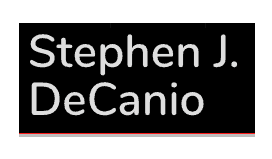04 Jul Rational Expectations and Learning from Experience
“Rational Expectations and Learning from Experience,” Quarterly Journal of Economics Vol. 93, 1979
Introduction
The burgeoning literature employing or alluding to the concept of rational expectations in time-dependent economic processes is strangely vague regarding possible mechanisms by which the economic agents could actually achieve the hypothesized “rationality.” Muth (1961) assumed that the formation of expectations according to his optimality criterion would have survival value in a competitive environment. However, it is almost self-evident that competition will drive out “irrational” producers only if the costs and technical difficulties of arriving at rational expectations are outweighed by the benefits. Muth made no attempt to specify a method, other than explicit computation of the rational forecasts based on complete knowledge of all market parameters and the time structure of the disturbance process, by which a maximizing producer could consciously improve the quality of his predictions. If no such algorithm based on information and computational techniques available to agents at some “reasonable” cost (i.e., a cost less than the benefits of accurate forecasts) exists, “rational expectations” as defined by Muth may be irrelevant to income-maximizing economic agents (Feige and Pearce 1976). [Footnote and references omitted.]


Sorry, the comment form is closed at this time.